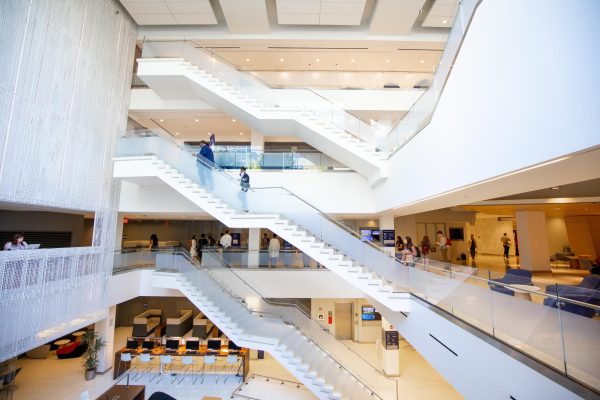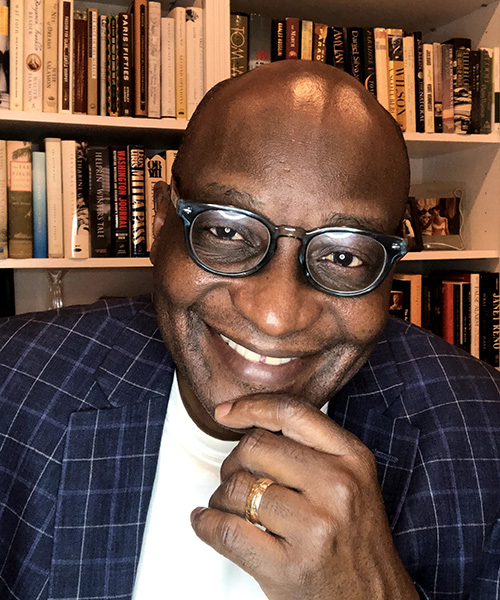Georgetown University’s College of Arts & Sciences (CAS) will inaugurate the law, justice, and society (LJS) minor, an interdisciplinary program focusing on legal theory and practice, in the Fall 2025 semester, faculty members confirmed to The Hoya on Feb. 13.
The LJS minor will include law-related coursework, hands-on professional training and internship experience at both the Capitol Campus and the main campus, involving interdepartmental coursework. A working group that included CAS and Georgetown University Law Center faculty developed the minor, which is the first minor program involving Capitol Campus.

Joseph Hartman (GRD ’15), a government professor who served on the working group, said the minor’s interdisciplinary structure differentiates it from traditional pre-law programs.
“You focus not only on case-law, institutions and legal structures, but also bring in history, theory and philosophical questions of justice that you would deal with in law school,” Hartman told The Hoya. “It allows us to cut across disciplines and come at law not from my perspective in constitutional law or jurisprudence, but law and society in the sociology department, or law and literature in the English department or Islamic law.”
Sue Lorenson, vice dean for undergraduate education in the College, said the minor would prepare students for a variety of legal careers because law is naturally interdisciplinary.
“Law intersects with a wide range of disciplines — including government, policy, education and the nonprofit sector,” Lorenson wrote to The Hoya. “By combining theoretical inquiry with practical experience, the program prepares students not only for law school but also for careers in fields where legal knowledge is essential.”
The minor involves elective courses across various departments, as well as required courses at the Capitol Campus. Students will enroll in a four-credit law internship seminar, where mentors will support student work in legal institutions; a one-credit law colloquium, featuring a guest speaker series with legal practitioners, academics and Georgetown graduates; and two one-credit courses focused on skill-based legal training.
Anthony Clark Arend (SFS ’80), chair of the government department, said the minor is especially necessary in the current political moment, as legal institutions increasingly face challenges.
“The rule of law is under great threat today — both at home and abroad,” Arend wrote to The Hoya. “Now, perhaps more than ever, we need a minor like this to help prepare students to navigate this changing landscape.”
“Given its liberal arts tradition, Georgetown is especially well equipped to offer the law, justice, and society minor as students and faculty work together to serve both the domestic and global communities,” Arend added.
Carla Shedd, an associate sociology professor who also served on the working group, said the Capitol Campus’s central location will directly connect students in the minor with legal institutions, policymakers, legal practitioners and advocacy organizations in the city.
“As an urban sociologist, I always think about the city as a laboratory, the city as this social field that can reveal so much to us,” Shedd told The Hoya. “The Capitol Campus is right there, next to all the courthouses and Judiciary Square.”
“One of the huge benefits is having this program and it being an option for people to get exposure to practitioners,” Shedd added. “So you would have a judge who might come right off the bench and then be your speaker in the colloquium that evening.”
Hartman, who was a private litigation attorney before becoming a professor, said the skill-based training will equip students with practical legal strengths, including argumentation, research, negotiation and writing.
“Having been a practicing lawyer and an academic for a long time, one of the neat things about law is that you really do combine very practical, hands-on, concrete issues, with fairly abstract and theoretical matter,” Hartman said. “It’s like the melding of those two.”
Shedd said the current legal and political climate is an opportune moment for students to appreciate diverse viewpoints and the intersection of law and justice through the minor.
“We’re in a really important moment to understand all these changes,” Shedd said. “But to get knowledge about the history, to think about the structures and to be prepared to think critically about our actions, behaviors and interpretations of what’s happening in the world moving forward makes it an exciting moment.”







